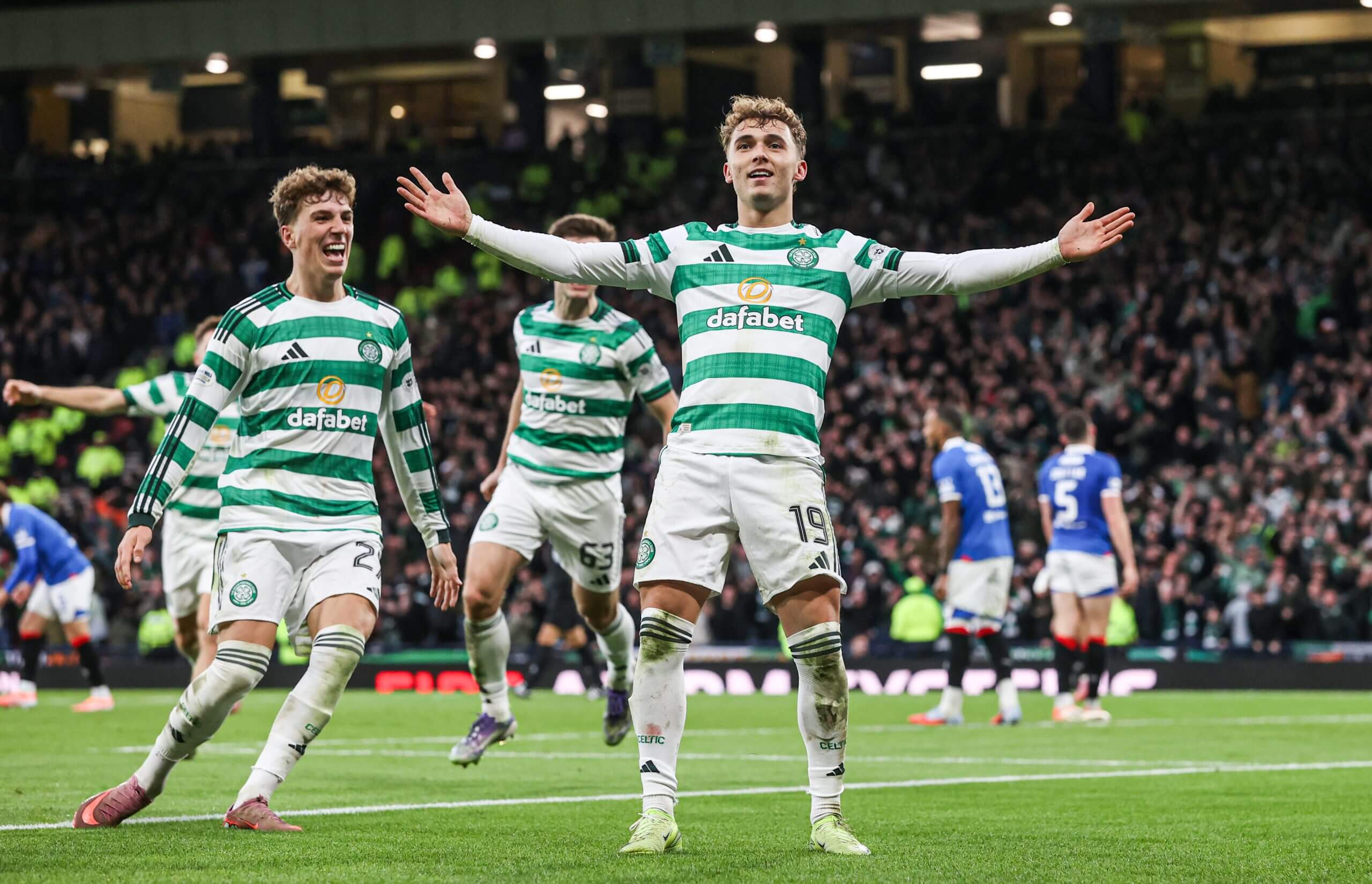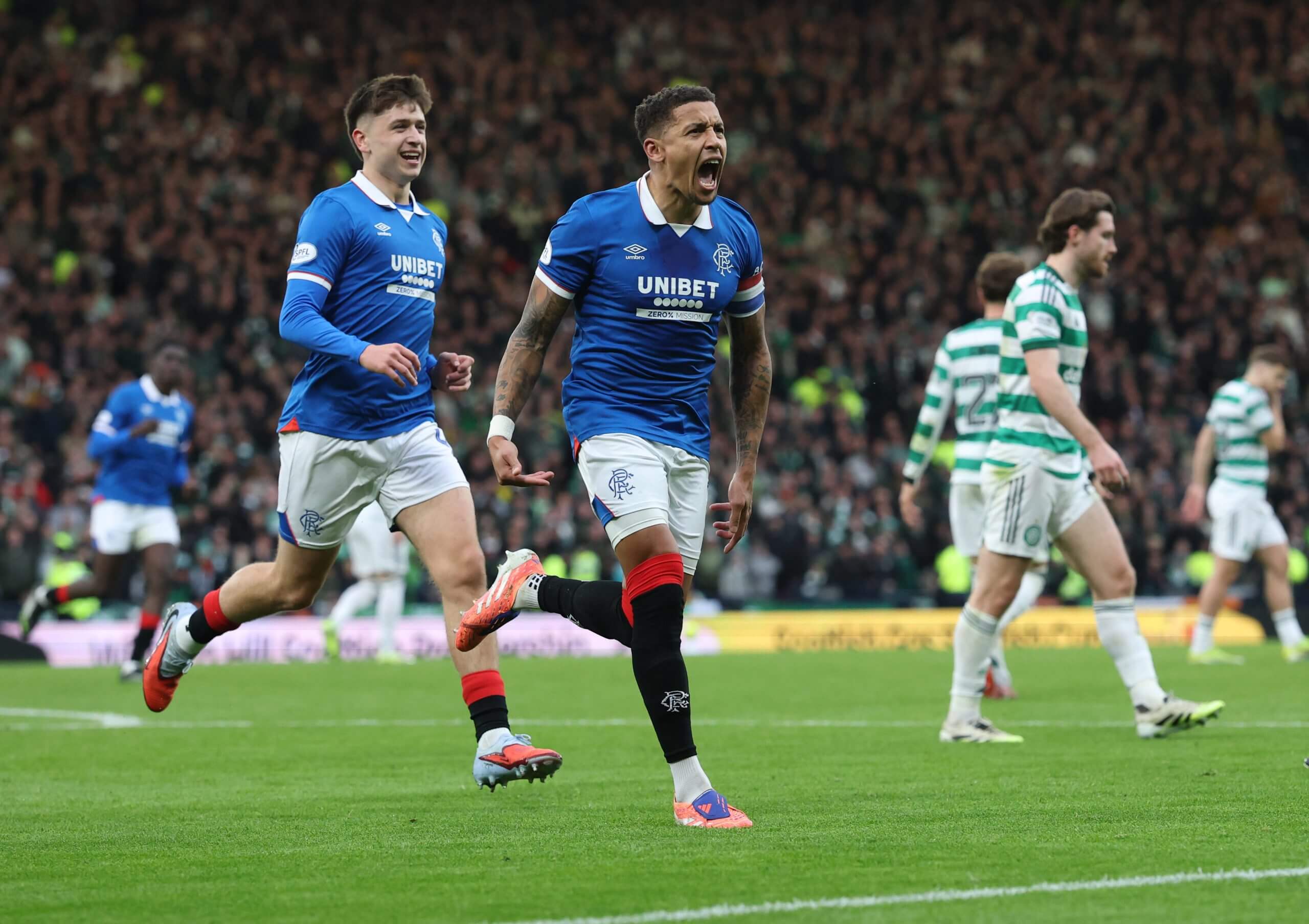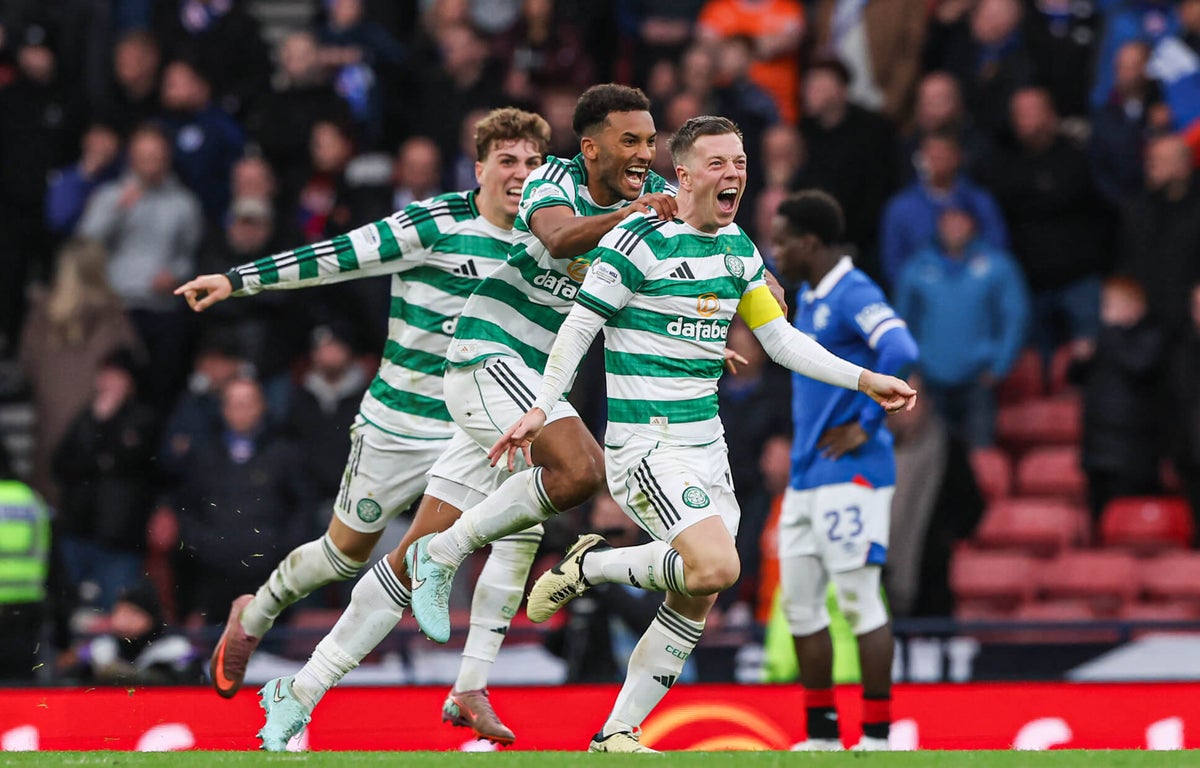There is life yet in those teetering, old Glasgow giants. Celtic and Rangers — or Rangers and Celtic — overcame valid, troubling recent doubts about their ability to produce anything other than self-inflicted harm via a Scottish League Cup semi-final teeming with incident, personality, controversy and colour.
At its end, and there was half an hour of extra time on top of the 90 minutes, Celtic had climaxed a week in which they lost a manager — Brendan Rodgers — with a victory and a first domestic final of the season; Rangers, less than a fortnight into what Ibrox will hope is an era for Danny Rohl, were applauded off by many of their fans having played with spirit and discipline despite being reduced to 10 men for most of a draining afternoon.
Martin O’Neill, heralded by the Celtic support, has lifted Celtic to two wins and a cup final in six days; Rohl, vocally supported by the Rangers end, has not guided his new team to a final, but he has been a similarly restorative presence.
It meant that both men, both clubs, departed into the sunset rising over Hamden Park with something to hold onto. That has not been the case for either club in a season pockmarked by failure and vitriol.
The chaos is told in three ways: Rangers being 14 points behind Hearts in the Scottish Premiership, albeit with a game in hand, and 36th of 36 clubs in the Europa League; and Celtic possibly having a new manager for December’s final against St. Mirren, meaning they will have had a different coach in charge for the quarter-final, semi-final and final of the competition. O’Neill chuckled at that. He is a serious football man, but there’s been a fair amount of chuckling these past few days.
Celtic’s summer strategy most certainly did not include the 73-year-old returning in October amid official statements concerning toxicity. Rodgers’ departure has, however, made that happen, and O’Neill was here being quizzed as to whether he would like to stay on beyond the two games played and won since Wednesday and the two coming up this week. He said he has received “no indication whatsoever” about what comes next, but suggested the international break would be a logical moment for change.
O’Neill also said in his post-match press conference that it was “really, really strange” to be back in the thrum of an Old Firm occasion and gave an honest assessment of the game’s turns and twists.
“It’s easy to sound patronising after you’ve won, but I’ve been watching Rangers from a distance and thought they weren’t fantastic,” O’Neill said. “But they showed a lot of resilience (today).
“I thought they did really well, particularly having spent a lot of the game with 10 men.”
Match facts: Celtic scored on 25 minutes, Johnny Kenny heading in an Arne Engels corner. On 38 minutes, Thelo Aasgaard was shown a straight red card for a high lunge at Anthony Ralston. In first-half added time, Auston Trusty was fortunate not to be shown another when he left his boot on the head of Rangers goalkeeper Jack Butland. Trusty was named man of the match regardless. He was merely booked for his stray boot, one of nine players to see yellow.
Celtic were in control and numerically superior, but Rangers seized the second half, and captain James Tavernier converted a penalty kick in the 81st minute. That brought another half-hour, but with those in blue understandably tiring. Tavernier’s Celtic counterpart Callum McGregor pinged in a beautiful second from 25 yards, and teenager Callum Osmand tapped in a third four days after O’Neill had given him a debut.

Osmand celebrates his goal (Craig Williamson/SNS Group via Getty Images)
Neither club looked in crisis and in each boardroom, that will have been a relief, because it has appeared otherwise this season. Rangers have had to remove Russell Martin and Celtic Rodgers, but there are other metrics with which to substantiate the crisis claim. The word ‘Europe’ features prominently.
As O’Neill noted, Celtic thoughts now turn to Thursday night and a trip to Denmark to face FC Midtjylland. O’Neill saw the Danes win at Nottingham Forest last month and is aware of the scale of that challenge. The same night, Rangers host Roma.
That both matches are in the Europa League, Europe’s second tier, says much about the season to date. The reason, of course, is because both clubs failed to qualify for the Champions League. Celtic could not score against Kairat Almaty of Kazakhstan over two legs and lost a penalty shootout in late August; 24 hours later, Rangers lost the second leg of their qualifier 6-0 at Club Brugge, having lost the first 3-1 at Ibrox.
It brought another bout of Scottish introspection about the standard of the domestic game. Earlier the same month, Dundee United had lost their Europa League play-off — in another penalty shootout — against Rapid Vienna. Hibernian were then eliminated in their qualifier in extra time at Legia Warsaw. So near and so far, Hibs and Dundee United exited the continent.
Aberdeen were another to lose a Europa League play-off in August — to Steaua Bucharest (now known as FCSB) — but the Dons had the consolation of a guaranteed place in the Conference League. Unfortunately for the club made famous by Sir Alex Ferguson, the Dons are 36th of 36 clubs in UEFA’s reconfigured league system. They lost their last match 6-0 at AEK Athens and now go to Larnaca, who have just beaten Crystal Palace. Fans need optimism as well as cash to make these voyages.
Aberdeen’s six and 36 numbers are familiar to Rangers and the tangible overall impact for Scotland is a drop down UEFA’s coefficient rankings. This matters: essentially, the lower a league’s current and recent coefficient history, the fewer clubs it can send into UEFA competitions. Those who do get there face extra hurdles, such as going into a qualifying round a stage earlier. It’s a hard spiral to stop and reverse.
With each European defeat, that is what looms for Scotland, and a further knock-on is that it makes recruitment more difficult.

Tavernier after scoring a penalty for Rangers (Ian MacNicol/Getty Images)
The theatre of an afternoon like this will always offer some appeal, though, even if the play was often as scrappy as it was compelling.
Watching from afar, and no doubt enjoying it from their maroon barstools in Edinburgh, were all involved at Hearts. One club’s crisis — or two in this instance — is another club’s opportunity. In a country where there has been no champion outside the Glasgow Two since 1985, Hearts have zoomed to nine wins and two draws in their 11 league games and are nine points ahead of Celtic, who they beat 3-1 last Sunday.
On Saturday, Hearts won 4-0 against Dundee, which means their goal difference is +19 to Celtic’s +8. Celtic do have a game in hand, but that goal difference will act as an extra point as time goes on. It is the sort of marginal gain to make Tony Bloom smile. The Brighton and Hove Albion owner invested £10m into Hearts in June and allied the club to his Jamestown Analytics scouting network. In forwards Claudio Braga and Alexandros Kyziridis, Jamestown has already delivered two impactful contributors, and at least two more are expected soon.
New goalkeeper Alexander Schwolow, a 33-year-old German who has spent his career in the Bundesliga with the likes of Freiburg and Hertha Berlin, joined Hearts on the last day of the summer transfer window. Schwolow was a free agent; he has kept five clean sheets in seven matches.
Manager Derek McInnes has been eager to play things down, to stress the early nature of the season, but after Saturday’s win, even McInnes’ tone seemed to shift. He told the BBC: “A few weeks ago, we set a challenge to the players — can we be above Celtic before we play them? And then can we be at the top of the league after the first round of fixtures?
“We’ve boxed off that little section and now we need to go again and start the next round. It’s a good reference point for me in the sense of: ‘Look what can be done’. I feel as though the squad is getting stronger.”
His players will have five games before the League Cup final. Including it, Celtic players will have nine.
Hearts may stick around for a while to come and their presence has added to the intrigue of the Glaswegian implosion. Hearts have given the division an injection of much-needed variety.
“Hearts are doing brilliantly,” O’Neill said when asked about the state of the league.
But he also saw “signs of life, absolutely” about Celtic and Rangers. For the infirm, as they are sometimes known, the hope will be that a line has been drawn.

